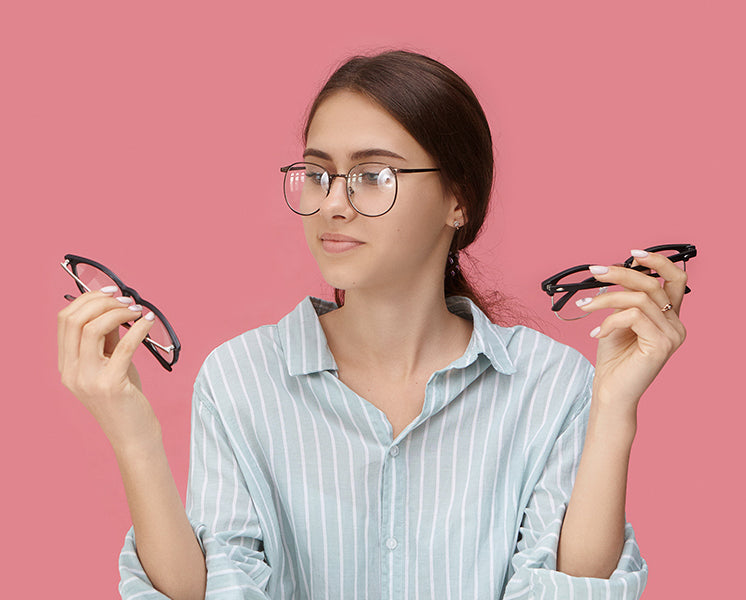As we age, changes in our eyesight become increasingly common. Two of the most popular solutions for addressing vision issues in older adults are bifocals and reading glasses. Both options are designed to help individuals see clearly, but they serve distinct purposes and have unique advantages. In this article, we'll explore the key differences between bifocals and reading glasses to help you make an informed choice for your vision needs.
Understanding Bifocals
1. Dual-Purpose Lenses: Bifocals are eyeglasses with two distinct sections in a single lens. The upper portion corrects distance vision, while the lower portion is tailored for near vision, typically used for reading or close-up tasks.
2. Seamless Transition: Bifocals feature a visible line across the lens where the two prescriptions meet. This line is called the "bifocal line" or "segment," and it facilitates a seamless transition between near and far vision.
3. Versatile for Varied Needs: Bifocals are ideal for individuals who require both distance and near vision correction. They are a versatile solution for those who spend time on tasks like reading, using a computer, or focusing on objects at varying distances.
4. Adapting to Bifocals: Adapting to bifocals may take some time, as wearers need to learn to direct their gaze through the appropriate portion of the lens for different tasks.
Exploring Reading Glasses
1. Dedicated Near Vision Correction: Reading glasses are designed exclusively for correcting near vision. They provide clear and focused vision for tasks like reading, sewing, or working on hobbies that require close attention.
2. Simplicity in Design: Reading glasses have a single prescription strength throughout the lens, which makes them straightforward and easy to use. There are no visible lines or segments like those found in bifocals.
3. Suitable for Occasional Use: Reading glasses are an excellent choice for individuals who primarily need near vision correction and do not require distance vision assistance. They are often used by those who experience presbyopia, a common age-related vision condition.
4. Convenience and Portability: Reading glasses are typically smaller and more portable than bifocals, making them convenient to carry in pockets or purses for on-the-go use.
Making the Choice: Bifocals or Reading Glasses?
The choice between bifocals and reading glasses ultimately depends on your specific vision requirements and lifestyle:
-
Choose Bifocals If:
- You require both distance and near vision correction.
- Your daily activities involve frequent transitions between far and near tasks.
- You're willing to adapt to the learning curve associated with using bifocals.
-
Choose Reading Glasses If:
- Your primary need is clear near vision for tasks like reading or crafts.
- You have little to no issues with distance vision.
- You prefer a simple and portable solution for occasional use.
In summary, bifocals and reading glasses serve different purposes in addressing vision problems associated with aging. Bifocals offer a versatile solution for those who need both distance and near vision correction, while reading glasses provide dedicated near vision assistance. Understanding your specific vision needs and lifestyle will help you make an informed choice between these two valuable eyewear options. Consulting an eye care professional can further assist in determining the best option for your individual vision requirements.



































